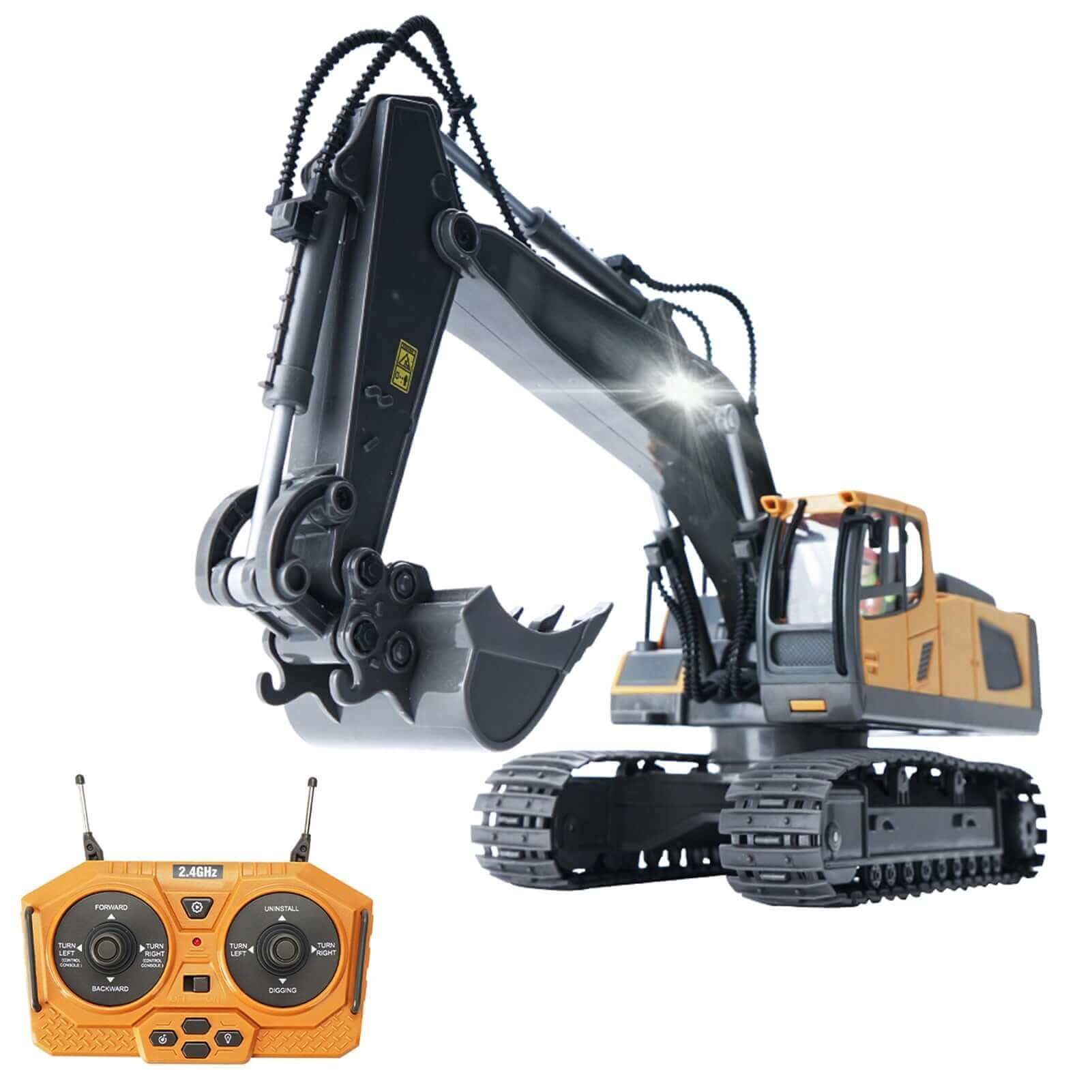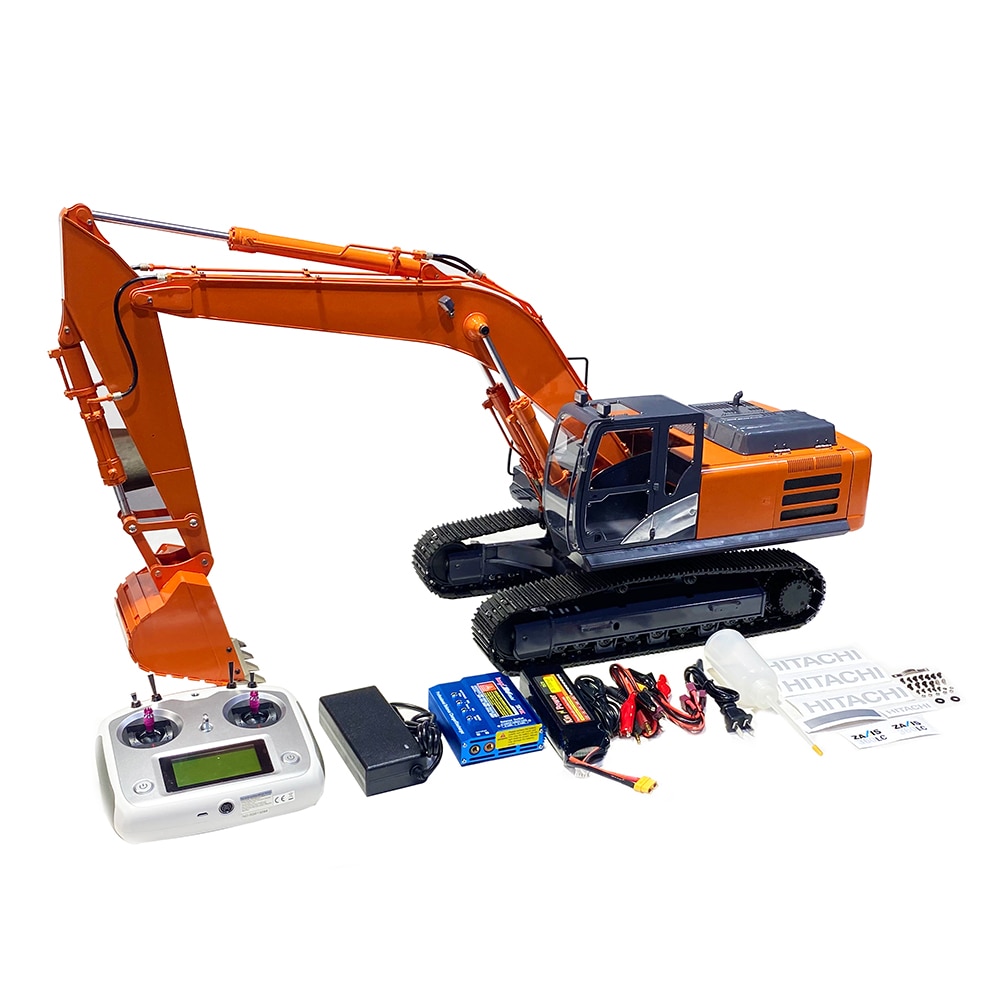Discover the Relevance of Excavator in Modern Construction Projects
Excavators are essential tools in contemporary building and construction jobs. Their versatility permits them to carry out a vast array of tasks, from digging and grading to demolition and site preparation. Advanced functions, such as hydraulic accessories and GPS, improve their capacities and performance on task websites. As the industry progresses, the importance of excavators expands a lot more. Understanding their function can disclose understandings into the future of construction techniques. What lies in advance for these makers?
The Flexibility of Excavators in Numerous Projects
Excavators are usually linked with large-scale construction jobs, their flexibility permits them to be made use of in a large range of applications, from property landscaping to utility upkeep. In urban setups, excavators can navigate tight areas to dig foundations for homes or set up drainage systems. Their capacity to carry out fragile tasks makes them optimal for landscaping tasks, where they can dig deep into for ponds or plant trees. On top of that, excavators play an essential function in utility maintenance, successfully excavating trenches for pipelines or cable televisions without interrupting surrounding areas. In agricultural applications, they assist in land clearing up and dirt prep work. Moreover, their versatility allows them to be outfitted with various accessories, boosting their capability throughout various jobs. This diverse nature of excavators not only improves numerous construction processes however also shows their important function in contemporary facilities development and maintenance.
Trick Features and Kinds Of Excavators
The discussion on key attributes and types of excavators highlights the essential characteristics that make these equipments important in building. Numerous excavator types, each created for certain tasks, demonstrate their flexibility and effectiveness across different applications. rc excavator. Comprehending these categories and functions is important for maximizing their usage in modern-day building projects
Excavator Types Overview
Excavators play a crucial role in modern-day building, using convenience and efficiency across different jobs. These heavy machinery systems been available in several kinds, each tailored for particular applications. The most usual types consist of crawler excavators, understood for their security on unequal terrain, and rolled excavators, which supply higher wheelchair on paved surfaces. Miniature excavators are preferred for small-scale projects and limited areas, while long-reach excavators are designed for deep excavating. Furthermore, there are specific excavators, such as hydraulic excavators, which boost power and precision. Each kind features one-of-a-kind capabilities, making them vital for tasks varying from digging and grading to demolition and product handling. Recognizing these variants permits construction specialists to choose the right excavator for their job needs.
Key Includes Explained
Comprehending the crucial features of excavators improves their efficient application in building and construction projects. Excavators are defined by their powerful hydraulic systems, which supply the needed pressure for excavating, lifting, and moving products. Their articulated arms permit for a wide variety of movement, facilitating accurate procedures in restricted areas. In addition, the variety of accessories, such as containers, grapples, and augers, expands their versatility to fulfill various job requirements. The size and weight of excavators likewise contribute to their stability and ability to move on numerous surfaces. Innovations in technology have led to the assimilation of GPS and automation, enhancing accuracy and performance in excavation jobs. These functions jointly place excavators as indispensable tools in contemporary construction.
Applications in Construction
Transforming building sites, excavators play a crucial function throughout various applications, ranging from household building projects to massive infrastructure advancements. These versatile machines are geared up for jobs such as digging foundations, trenching for energies, and site grading. Various kinds of excavators, consisting of spider, wheeled, and mini excavators, supply details advantages customized to the job demands. Crawler excavators excel in rough terrains, while rolled excavators offer mobility on smooth surface areas. Small excavators are suitable for restricted areas, making them popular in metropolitan settings. The efficiency and power of excavators significantly accelerate building processes, ensuring prompt task completion. Their versatility additionally improves their value, permitting construction teams to tackle a diverse range of difficulties successfully.
Enhancing Effectiveness and Efficiency on Work Sites
Taking full advantage of performance and performance on task sites is an important objective in modern-day building and construction. Excavators play a crucial duty in attaining this objective by simplifying different jobs. Their ability to perform several features-- such as excavating, grading, and training-- minimizes the requirement for additional devices, thus saving time and resources.Moreover, excavators improve operations by permitting faster completion of projects. With sophisticated features like hydraulic attachments and GPS technology, they can implement precise procedures that decrease mistakes and remodel. This precision not just enhances the high quality of work however also optimizes material use, contributing to set you back savings.The convenience of excavators permits them to adjust to various site conditions, ensuring that tasks advance efficiently regardless of difficulties. By integrating excavators right into building processes, groups can greatly boost their overall productivity, causing prompt project conclusion and boosted productivity.
Security Advantages of Utilizing Excavators
Excavators greatly boost safety on building and construction websites with improved driver visibility and reduced manual work risks. By giving drivers with a clear sight of their environments, excavators assist to avoid accidents and injuries. Furthermore, the machinery reduces the demand for employees to take part in harmful hands-on tasks, better promoting a more secure work atmosphere.
Enhanced Driver Exposure
Construction websites can be chaotic and filled up with prospective dangers, improved operator exposure plays an essential duty in ensuring security when making use of excavators. Modern excavators are designed with huge, unobstructed home windows and purposefully put mirrors, enabling operators to keep a clear sight of their surroundings (rc excavator). This improved presence is essential for detecting pedestrians, other equipment, and various obstacles, significantly lowering the risk of accidents. Furthermore, several excavators include advanced modern technology, such as video cameras and sensors, to supply operators with visit our website extra viewpoints, even more improving understanding. The capacity to see even more plainly not just aids in efficient procedure however additionally fosters a safer workplace, making it much easier for operators to browse complicated construction websites without jeopardizing safety and security standards
Reduced Guidebook Labor Risks
When hands-on labor is lowered via the usage of excavators, many safety and security advantages arise, significantly improving the well-being of building employees. Excavators decrease the physical strain associated with hefty lifting and repetitive jobs, successfully decreasing the threat of bone and joint injuries. By automating procedures such as digging, grading, and moving materials, they enable employees to keep a much safer range from prospective risks. In addition, excavators are geared up with advanced safety attributes, such as rollover security systems and boosted driver comfort designs, which better protect workers on website. The outcome is a substantial decrease in office accidents and injuries, causing enhanced efficiency and morale amongst building teams. Eventually, the adoption of excavators contributes to a much safer and much more reliable construction setting.
Excavators in Earthmoving and Website Preparation
In modern building, a considerable portion of earthmoving and website preparation jobs relies upon the performance and versatility of excavators. These machines are created to handle various soil kinds and terrain, making them essential for rating, excavating, and trenching activities. Their hydraulic arms can be geared up with various add-ons, such as augers and pails, enabling drivers to tailor their method based upon particular job requirements.Excavators succeed at relocating large quantities of planet promptly and efficiently, which increases the overall construction timeline. They can browse limited rooms and testing websites where conventional devices might struggle, enhancing efficiency. In addition, the precision of excavators assurances that site preparation follows stringent specs, reducing the danger of mistakes that can bring about expensive rework.
The Function of Excavators in Demolition Tasks
Excavators play an important function in demolition jobs, as they possess the power and agility needed to take apart structures effectively. Geared up with different attachments such as hydraulic breakers, shears, and grapples, these equipments can adapt to various demolition requirements, whether for tiny buildings or large industrial websites. Their adaptability enables drivers to deal with complicated jobs while preserving security and precision.In addition to their demolition capabilities, excavators facilitate debris removal, guaranteeing that job websites remain safe and well organized. By breaking down frameworks right into workable items, they allow for structured clearing and recycling of products, straightening with modern-day sustainability efforts.Moreover, excavators can access limited areas and browse irregular surface, making them vital in urban demolition projects. On the whole, their durable style and multifunctionality make excavators a vital property in the demolition phase of building, adding considerably to project timelines and effectiveness.


Future Patterns in Excavator Modern Technology and Use
As the building and construction market advances, innovations in excavator technology are poised to change their usage and performance noticeably. One substantial trend is the combination of automation and man-made knowledge, enabling excavators to operate with marginal human treatment. This change will certainly improve accuracy in jobs such as grading and trenching, minimizing human error and boosting productivity.Additionally, the surge of hybrid and electric excavators is forming a web link more lasting building setting, decreasing carbon emissions and gas expenses. Improved telematics systems are likewise emerging, making it possible for real-time surveillance of device performance and upkeep demands, which can lead to far better operational effectiveness and longer equipment lifespan.Moreover, advancements in accessory modern technology are increasing the convenience of excavators, permitting them to carry out a broader variety of jobs. The combination of these fads demonstrates a future where excavators are smarter, greener, and much more versatile, ultimately improving building and construction project dynamics.
Often Asked Inquiries
Just How Do Excavators Contrast to Various Other Building Machinery?
Excavators, defined by their adaptability and power, master excavating and earthmoving contrasted to other equipment. Their capability to perform different jobs, including lifting and demolition, makes them vital in building jobs, boosting total efficiency.

What Is the Typical Lifespan of an Excavator?
The ordinary lifespan of an excavator typically varies from 7,000 to 10,000 operating hours, depending on upkeep, use problems, and model. Appropriate care can extend this lifespan, ensuring peak efficiency throughout its functional years.
How Are Excavators Maintained for Optimal Performance?
Excavators require routine upkeep for peak performance, including routine evaluations, fluid checks, filter substitutes, and prompt repair work. Executing a preventive maintenance timetable aids extend their lifespan and guarantees effective operation in numerous building and construction environments.
What Are the Expenses Connected With Purchasing an excavator vs. renting?
The prices related to acquiring linked here an excavator versus renting vary significantly. Leasing offers reduced upfront costs but can build up over time, while acquiring needs a significant initial financial investment, yet supplies long-lasting savings and property possession advantages.
What Training Is Called For to Operate an Excavator?
Operating an excavator needs specialized training, usually consisting of security methods, machine procedure strategies, and ecological understanding. Accreditation programs commonly mandate useful experience, enabling operators to take care of various jobs effectively while guaranteeing compliance with market laws. The most usual kinds consist of crawler excavators, known for their security on irregular terrain, and rolled excavators, which provide better mobility on paved surface areas. Small excavators are preferred for limited areas and small tasks, while long-reach excavators are designed for deep excavating. In addition, there are customized excavators, such as hydraulic excavators, which boost power and precision. Different types of excavators, consisting of spider, wheeled, and mini excavators, offer particular benefits tailored to the task needs. Spider excavators succeed in harsh terrains, while rolled excavators offer wheelchair on smooth surfaces.